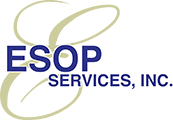This agenda summarizes The ESOP Association’s legislative initiatives that are active at this time.
HR 1778 Employee Ownership for the 21st Century Act
On April 11, 2003, Congressman Cass Ballenger (R-NC) introduced HR 1778, the Employee Ownership for the 21st Century Act, calling for establishment of a Presidential Commission on Employee Ownership. In a ground-breaking move, HR 1778 mandates the following groups will serve on this commission: three non-management employee owners; three executives of employee-owned companies; three representatives of non-profit organizations committed to employee ownership; three relevant academics; and just three government-affiliated representatives (one from the Department of Labor (DOL), one from the Department of Treasury, and one from the Office of Management and Budget).
The ESOP Association strongly endorses HR 1778. Currently, this legislation has 21 co-sponsors and has not yet been considered in the House Committee for Education and the Workforce. Passage of HR 1778 would result in a coherent, national set of laws designed to promote ESOPs as a policy priority, and would force regulatory agencies to aid ESOPs, rather than stifle them.
HR 1896 S Corporation Modernization Act
On April 30, 2003, Congressman Clay Shaw (R-FL) introduced HR 1896, the S Corporation Modernization Act, calling for amendments the certain laws affecting S Corporations. The ESOP Association is especially sensitive to issues affecting S Corp. ESOPs; the Association represents approximately 800 of these S Corporation ESOPs.
Regarding HR 1896, Section 604 of this legislation, which permits S Corporation ESOP companies to operate with few constraints and less complications, is of interest to The ESOP Association. Section 604, “Distribution by an S Corporation to an Employee Stock Ownership Plan,” would greatly expand the appeal for S Corporations to sponsor ESOPs by removing some of the unintended restrictions on creation and operation of S Corp. ESOPs, particularly when the ESOP holds less than 50% of the stock, that often deter S Corporations from implementing ESOPs.
Specifically, Section 604 would permit:
- S Corporation ESOP companies should be able to pay dividends on current earnings to employee owners to enhance the value of being an owner, without subjecting employee owners to a punitive 10% excise tax. Non-ESOP shareholders in S Corporations are not required to pay this penalty tax.
- S Corporation ESOP companies should be permitted to apply dividends to ESOP debt, when the dividends are both on allocated and unallocated shares
The ESOP Association will continue to advocate an aggressive posture regarding these “fixes” to S Corporation ESOP law.
HR 2969 US Employee Ownership Bank Act
Following testimony to the Subcommittee on Financial Institutions and Consumer Credit to the House Committee on Ways and Means by three ESOP Association leaders on June 10, 2003, Rep. Bernie Sanders on July 25 introduced HR 2969, the US Employee Ownership Bank Act. (J. Michael Keeling, President, The ESOP Association, Washington , DC ; George A. Ray, Chair, The ESOP Association and CEO/Chair, LeFiell Manufacturing Company, Santa Fe Springs , CA ; and Sherry Ceresa, Statistical Analyst, Gardener’s Supply Company, Burlington , VT , were among the witnesses in this hearing.)
The Employee Ownership Bank Act is designed to provide loan guarantees, subordinated loans, and technical assistance to employees who want to buy their companies through an ESOP or an eligible worker-owned cooperative (E-WOC).
HR 2969 was rolled-out with an impressive list of 16 bi-partisan and original co-sponsors including Rep. Dana Rohrabacher (R-CA) and Rep. Carolyn Maloney (D-NY). According to ESOP Association research, at least 12 of these co-sponsors are, for the first time in their congressional careers, taking a public position for more employee ownership.
The Association’s Board of Directors agreed to support HR 2969 with correction of two minor provisions in the legislation, as it was introduced.
HR 1000 Pension Security Act of 2003
HR 1000, the House version of 2002’s Enron-ERISA reform legislation, passed the US House of Representatives by a vote of 271 to 157 on May 14, 2003. Introduced by Rep. John Boehner (R-OH), Chair of the House Committee for Education and the Workforce, this legislation provides that employees in ALL stand-alone ESOP companies, both publicly-traded and privately-held, are exempt from the bill’s call for three-year diversification out of company stock. In addition, employees at privately-held K-SOP companies are also exempt from the three-year diversification requirement. (A stand-alone ESOP is an ESOP that operates separately from a company’s 401(K) plan. A K-SOP is an ESOP where the employee contribution goes to a 401(K) plan and the employer’s “match” contribution goes to an ESOP in the form of company stock.)
Nearly identical legislation passed the House in 2002, but stagnated because the Senate failed to pass its version of Enron-ERISA reform legislation. It remains to be seen what will happen during 2003.
